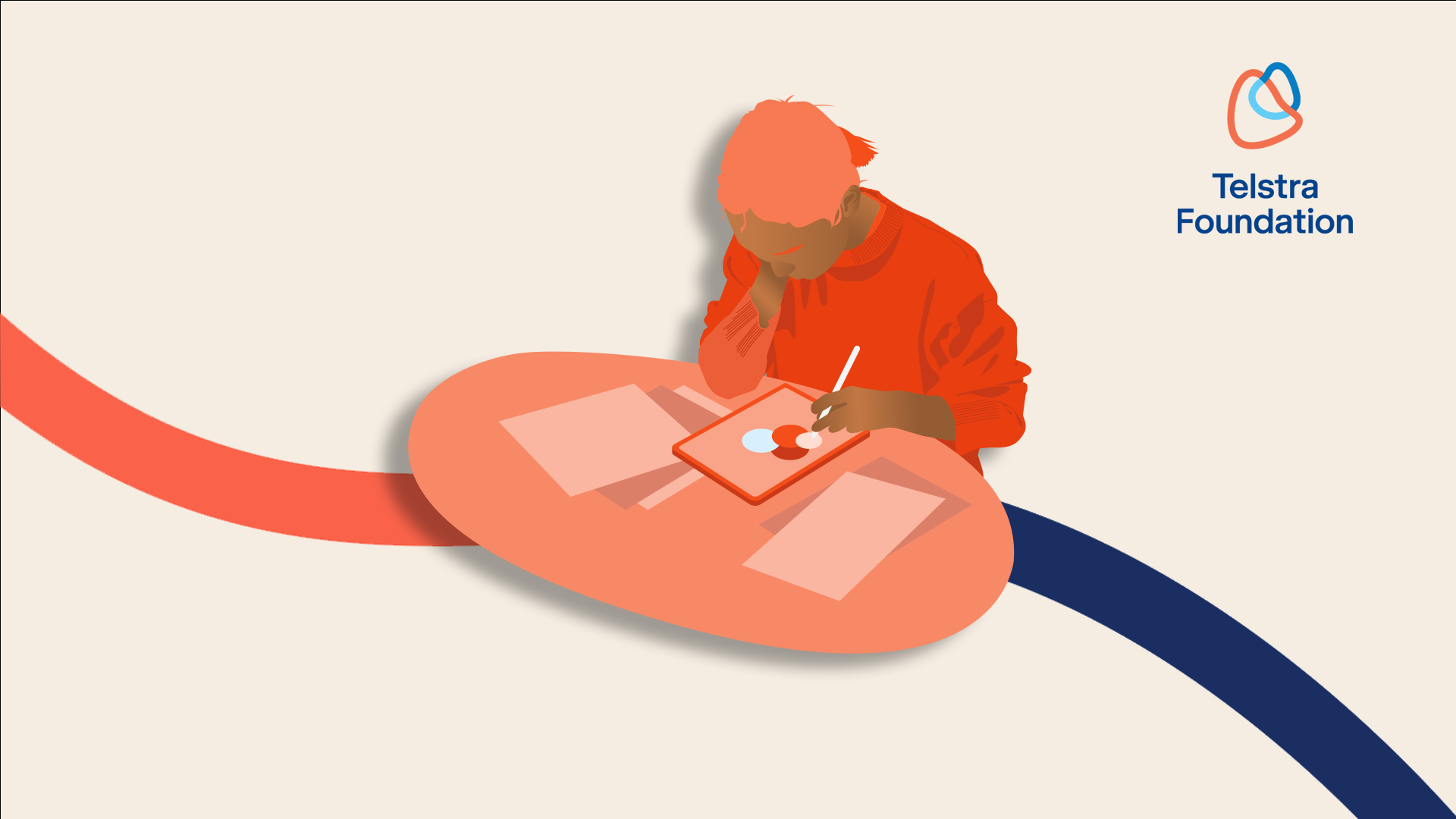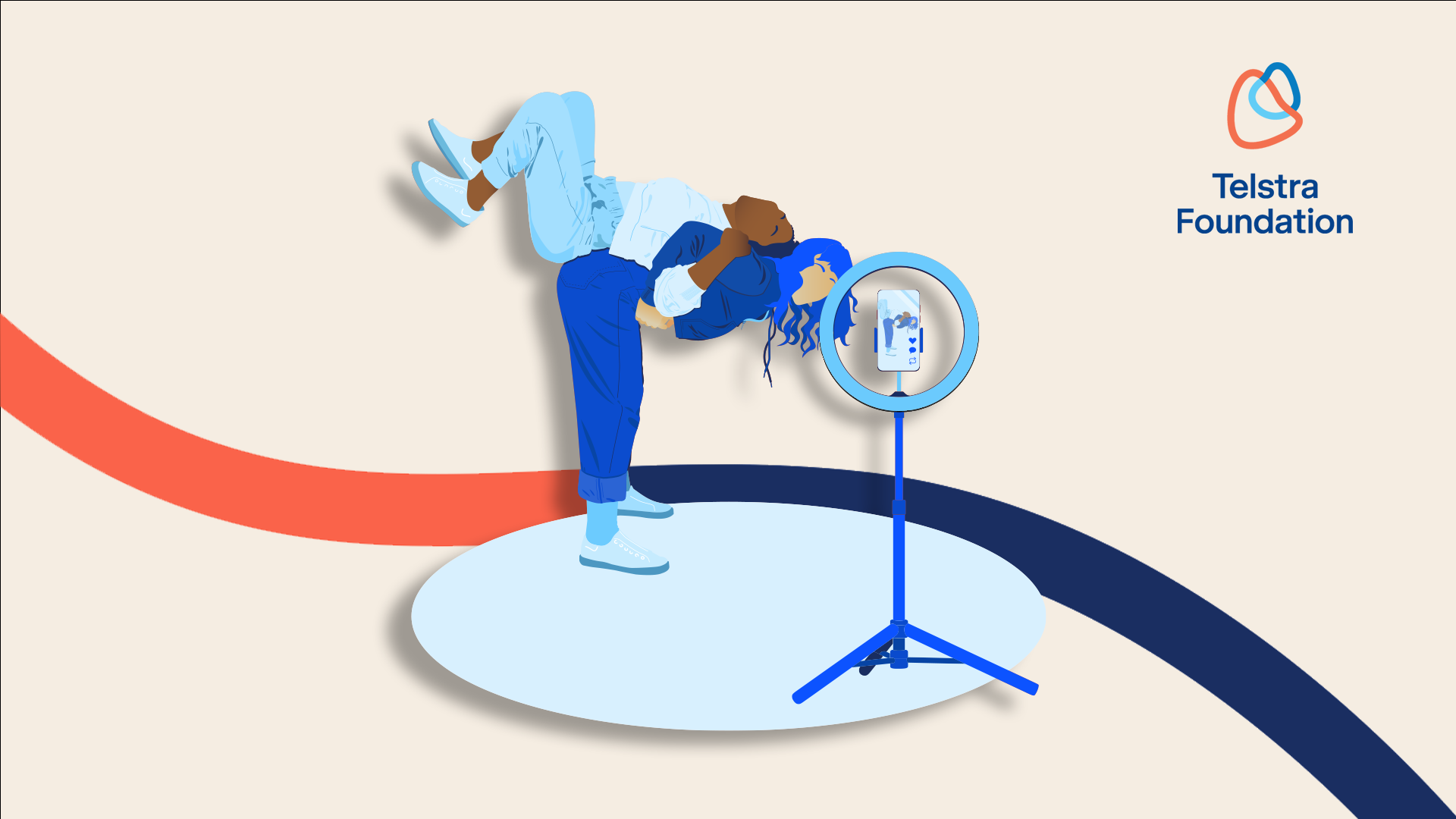- Alannah and Madeline Foundation
The Alannah & Madeline Foundation believes every child has the right to a happy, safe life free from violence and trauma, and we support this mission via our care, advocacy and prevention programs. Our eSmart initiative is designed to keep children safe online while fostering a culture of responsible technology use in school communities.
While technology presents certain risks for young people, it also holds many benefits and opportunities. Social connectedness, learning, relationships with extended family, even mental health and wellbeing: all of these are areas where access to digital technology can help children thrive when supported by adult guidance and education on safe, responsible use.
Digital tech can support young people to connect and learn
One of the biggest advantages of digital technology for young people is the increased opportunity for social connection and relationship building. Messaging apps have made it easy to speak with friends and relatives even when separated by long distances.
Though social media has understandably been a focus of community concern in recent years, these platforms can offer young people a way to connect with others. Whether it’s through hobbies and interests, support groups for people experiencing illness or disability, or shared cultural identity, online platforms can help young people to build identity and contribute to a community.
Another big plus for digital tech is the wide variety of online educational content or eLearning resources. From learning a new language to uncovering their local history, there are eLearning resources for every topic, many of them available for free. For those who are geographically isolated or unable to attend a physical classroom, the opportunities for remote learning continue to grow exponentially.
Choosing to disconnect for safety
Of course, not all children see smartphones as a source of security. Telstra Foundation’s Australian Youth Digital Index (AYDI) shows 29% of young people have experienced online bullying from someone they know, and 20% have been bullied by strangers. Primary-school children were particularly concerned about this aspect of tech safety, with 45% worried about being bullied online.
Private group chats on messaging platforms, online gaming environments, social media posts, and public comments all serve as potential spaces for online bullying to take place.
If your child reveals they are being bullied online, it is important to express gratitude and empathy for their openness, recognising the courage it takes to speak up. Involve your child in the decision-making process and openly discuss the next steps with them. The Alannah & Madeline Foundation has resources to help you navigate this difficult situation.
One option is to use blocking features to exclude the hurtful content, while some young people may choose to take a break from smartphones, using a more basic model that still allows contact with loved ones. Disconnecting for safety is a temporary fix, but ultimately cyber-bullying needs to be addressed. In Australia, laws govern online bullying material, and familiarising yourself with the reporting process outlined by the eSafety Commissioner will enable you to take appropriate action.
Barriers to access
For many young people in marginalised communities, consistent access to technology and Wi-Fi is something they simply cannot afford, and this is borne out in the AYDI research. Households may have only one device shared among multiple family members, making it difficult for young people to have internet access that meets their needs. Limited Wi-Fi access at home also affects some young people, further exacerbating the digital divide.
Young people in these situations often rely on community resources like free public Wi-Fi spots at libraries or schools, seeking out creative solutions to stay connected despite limited means. The AYDI research shows that close to 250,000 young people (4%) use connections supplied by others as their most frequent method of going online.
The role of the Alannah & Madeline Foundation
Through eSmart and our other programs, the Alannah & Madeline Foundation is committed to helping young people navigate the digital world safely and confidently. Our goal is to build understanding around how technology access can be a critical factor in a young person’s safety, wellbeing, and education. By advocating for nuanced policies that consider each child’s unique circumstances, we aim to create a safer, more supportive digital environment for all.
Together, we can work toward a future where every child feels safe, connected, and supported – both online and offline.
Notes
Telstra Foundation has partnered with the Alannah & Madeline Foundation for over a decade to support their eSafety initiatives including DigiTalk and eSmart.

